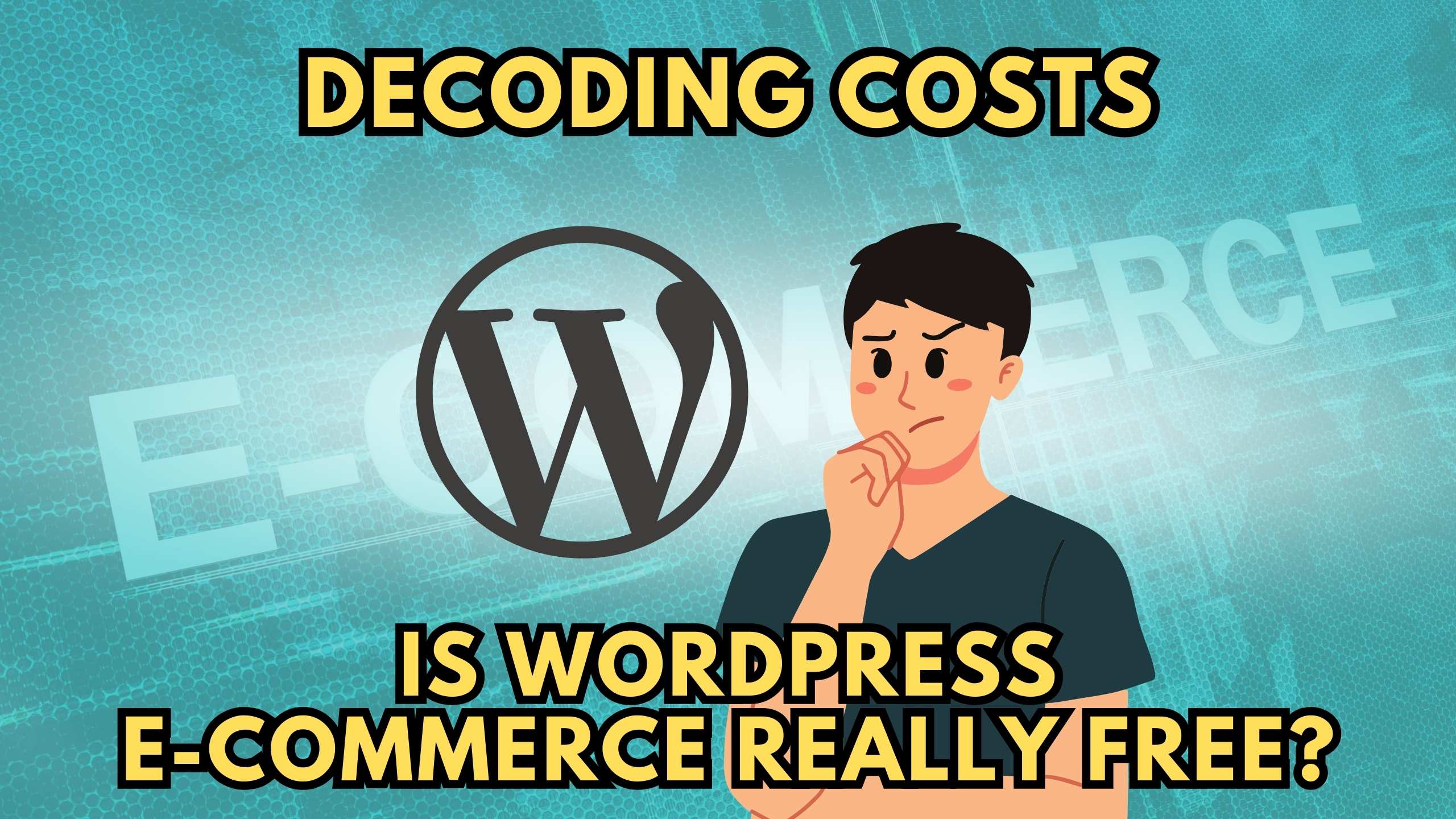Decoding Costs: Is WordPress E-commerce Really Free?


Decoding Costs: Is WordPress E-commerce Really Free?
WordPress is a popular choice for e-commerce websites, primarily due to its reputation for being a cost-effective solution. In this exploration, we will dissect the costs associated with WordPress e-commerce and unveil whether it is genuinely a free platform for selling products online.
1. The Initial Promise of Free
While the WordPress software itself is open-source and free to use, the assertion that WordPress e-commerce is entirely free can be misleading. Plugins and themes, often essential for creating a functional and visually appealing online store, may come at a cost. Popular e-commerce plugins like WooCommerce, though robust, might have premium extensions or themes that incur additional expenses.
2. Hidden Costs: Plugins and Extensions
To enhance the functionality of a WordPress e-commerce site, users often turn to plugins and extensions. These can range from payment gateways to inventory management tools. While some plugins are free, many essential ones with advanced features require a purchase. Additionally, the need for ongoing support and updates might involve recurring costs, contributing to the overall expenditure.
3. Design and Customization Expenses
A visually appealing online store is crucial for attracting and retaining customers. While WordPress provides free themes, businesses often invest in premium themes for a more professional and unique appearance. Customization might require hiring a developer, incurring further costs. Balancing a budget-friendly approach with the desire for a distinctive online presence becomes a critical consideration.
4. Hosting Expenses
While WordPress itself is free, hosting is not. A reliable hosting service is essential for a smooth and secure e-commerce operation. Opting for managed WordPress hosting or high-performance hosting tailored for e-commerce can result in additional expenses. These hosting choices directly impact website speed, security, and overall performance.
5. Maintenance and Security Investments
Ensuring the ongoing health and security of a WordPress e-commerce site involves regular maintenance. Businesses may need to invest in backup solutions, security plugins, and professional maintenance services to safeguard against potential issues. The costs associated with these measures contribute to the overall expenditure of maintaining a WordPress e-commerce website.
Recommended SaaS Products for E-commerce Optimization
As you navigate the complexities of WordPress e-commerce, consider integrating these SaaS products to enhance efficiency and streamline your operations:
- Shopify: A comprehensive e-commerce platform offering a seamless solution for online businesses.
- Magento: An open-source e-commerce platform known for its flexibility and scalability.
- BigCommerce: A cloud-based e-commerce platform designed for growth and customization.
- Ecwid: An easy-to-use, versatile e-commerce solution for businesses of all sizes.
Conclusion
In conclusion, while the WordPress software is free, the true cost of running an e-commerce site on this platform involves considerations beyond the initial promise of “free.” From essential plugins and themes to hosting and ongoing maintenance, businesses should carefully assess their needs and budget to determine if WordPress is genuinely a cost-effective solution for their e-commerce endeavors.
Unlock Savings and Streamline Your E-commerce Stack
Ready to optimize your e-commerce expenses? Explore exclusive deals on SaaS tools tailored for freelancers, agencies, and small teams at Subscribed.fyi! Sign up for free today and take control of your expenses. Unlock Your Savings Now!
Relevant Links:





